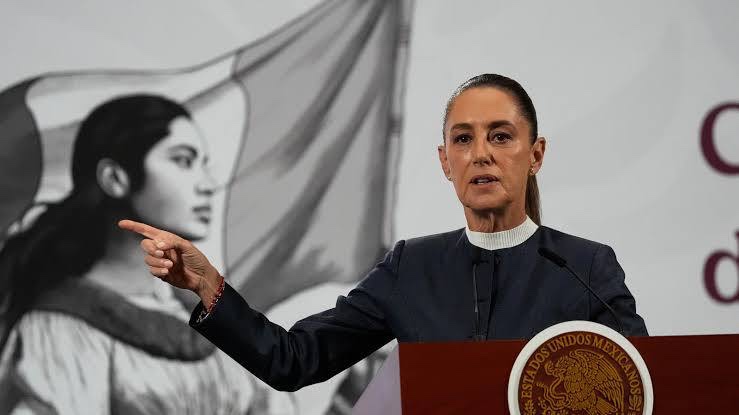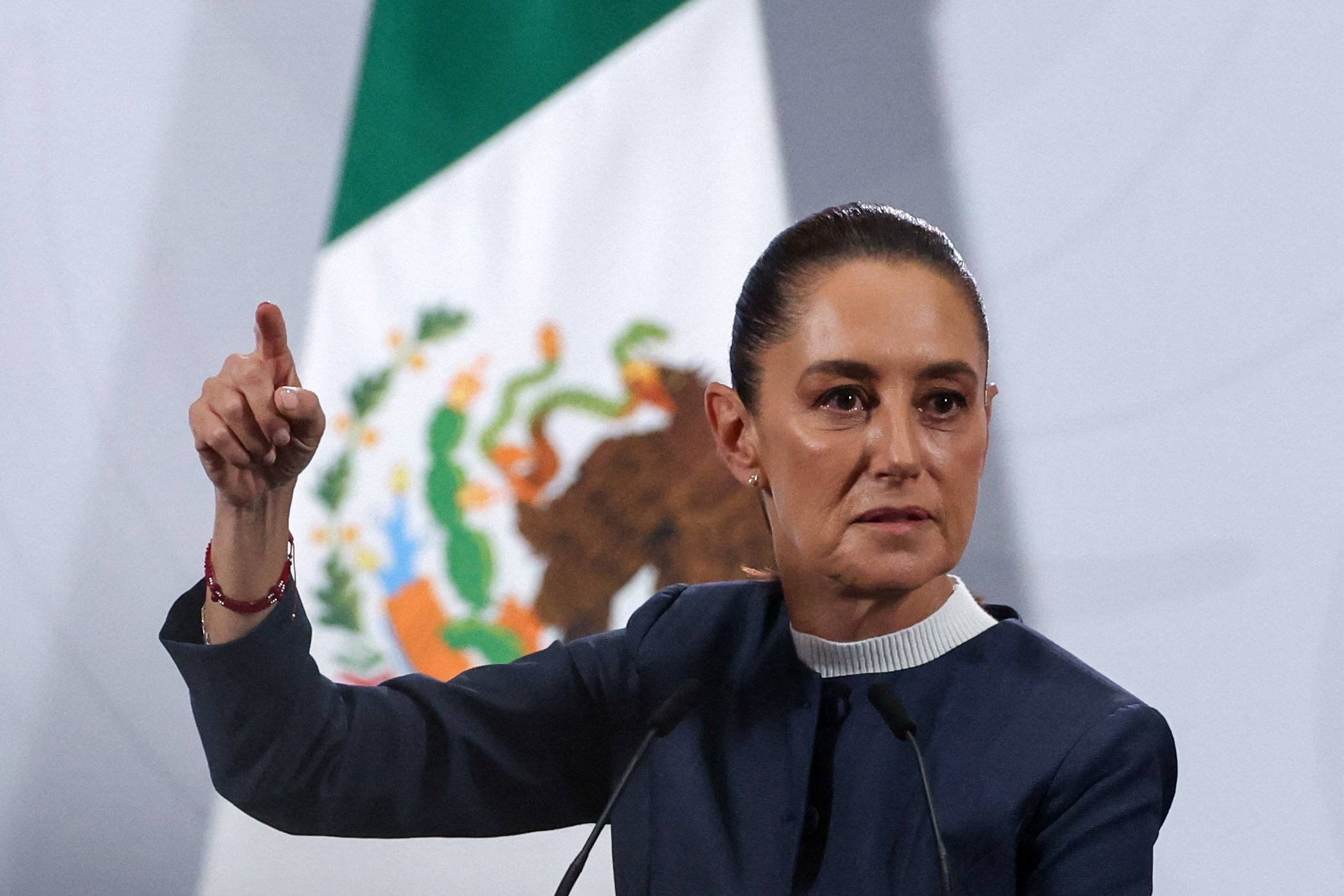Claudia Sheinbaum, the President of Mexico, has filed a legal complaint after a viral video showed her being harassed by a drunken man while walking in downtown Mexico City. The incident has ignited national outrage and renewed discussions on women’s safety in public spaces.
Sheinbaum’s response was swift and resolute. “If something like this can happen to the President, what about ordinary women walking alone every day?” she said during a public statement. Her words struck a chord across Mexico, where cases of street harassment and gender-based violence remain deeply entrenched issues.
A Viral Incident That Shook Mexico
The video, captured by bystanders and widely shared across social media platforms, showed the man approaching Sheinbaum and making inappropriate gestures and comments before being restrained by her security detail.
The footage quickly went viral, sparking both shock and support from the public. Many Mexicans saw the event as a symbol of the everyday dangers women face, even in broad daylight. Within hours, hashtags supporting Sheinbaum’s stance trended nationwide, including #NiUnaMas (“Not One More”), echoing Mexico’s long-running campaign against femicide and sexual harassment.
Public Outcry and Social Media Reaction
Citizens and activists took to social media to demand stronger enforcement of existing laws and better protection for women in public spaces. Several feminist organizations praised Sheinbaum for not dismissing the incident as “minor” and for using her position to highlight a pervasive problem.
In contrast, some critics accused her of politicizing the incident. However, the overwhelming majority of voices backed her firm stance, describing it as a turning point in Mexico’s public discourse on gender-based violence.
Legal Action Against the Perpetrator
Sheinbaum confirmed that she personally filed a formal complaint with the attorney general’s office. Authorities have identified and detained the suspect, who now faces charges under Mexico’s harassment laws.
According to government officials, the move aims to send a strong message that no act of gender-based aggression will go unpunished regardless of the target or the perpetrator’s state of intoxication.
The Broader Issue of Women’s Safety in Mexico
The President’s decision has reignited national debate on women’s safety and the culture of impunity surrounding sexual harassment in Mexico. Statistics from the National Institute of Statistics and Geography (INEGI) show that more than 70% of Mexican women have experienced harassment in public spaces.
Despite numerous public awareness campaigns and government reforms, many victims still face social stigma and legal hurdles when seeking justice.
Institutional Reforms Under Review
In response to public pressure, Sheinbaum announced plans to review existing laws and propose new measures to improve reporting mechanisms and accountability. Her administration is also considering the establishment of rapid-response gender units to handle harassment cases more efficiently.
These reforms, she emphasized, will not only target punishment but also prevention through education, public campaigns, and community policing strategies.
Symbolism of a Woman President Taking a Stand
As Mexico’s first female president, Sheinbaum’s actions carry strong symbolic weight. Her public defiance against harassment reflects a broader movement for equality and justice in a country still grappling with systemic machismo.
Political analysts suggest that her decision could redefine leadership standards in Latin America, where women in power often face both overt and subtle gender discrimination.
Global and Domestic Reactions

The incident and Sheinbaum’s legal response have drawn international attention. Organizations such as UN Women Mexico praised her courage and leadership, describing it as “an example of accountability and dignity in the face of aggression.”
Meanwhile, the Korea Joongang Daily and other international outlets highlighted how this event may mark a pivotal moment in Latin America’s struggle against gender-based violence.
In Mexico, local leaders across the political spectrum both allies and opponents expressed solidarity, underscoring that harassment “has no political color” and must be addressed as a national priority.
Changing the Narrative Around Harassment
Sociologists note that Sheinbaum’s case could help reshape how harassment is perceived in Mexico. Instead of being normalized or trivialized, such acts might now be recognized as serious violations of personal and social integrity.
Grassroots organizations have already reported a surge in calls and messages from women inspired to report their own experiences following the President’s example.
Toward a Safer Public Space for All
Mexico’s broader challenge lies not only in strengthening its legal framework but also in transforming public attitudes. Experts stress that education, public awareness, and consistent enforcement are essential for long-term change.
Sheinbaum reiterated that her goal is not revenge, but justice. “This is not just about me,” she declared. “It’s about every woman who deserves to walk safely in her own city.”
Her statement encapsulates a growing demand among Mexican citizens: that respect, equality, and safety should be fundamental rights, not privileges.
In conclusion, the Claudia Sheinbaum case has become more than a personal act of resistance it has evolved into a national symbol of courage and accountability. The President’s stand against harassment may mark a new chapter in Mexico’s gender rights movement.
For readers interested in related global developments, explore other stories on gender policy and leadership reforms at Olam News.




